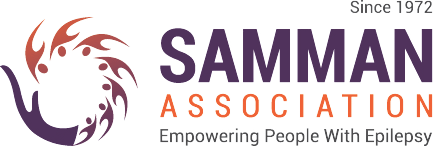Downloaded from The Lancet Neurology, Volume 11, Issue 10, Page 849, October 2012 Neuro Film Festival: challenge and inspiration
Frances Whinder
For its annual Neuro Film Festival competition, the American Academy of Neurology Foundation invites people affected by neurological disorders to submit short films telling their stories and explaining why research into the prevention, treatment, and cure of brain diseases needs to be supported. The 105 entries made this year, the third in the competition’s history, go far beyond this aim, taking the viewer on a journey that is sometimes challenging, sometimes moving, sometimes painful, but always inspirational.
The 2012 overall winner, chosen by an anonymous panel of expert judges, is The Astronaut’s Secret from director Zach Jankovic. The astronaut in question is Rich Clifford, who was diagnosed with Parkinson’s disease (by Jankovic’s father, who is a neurologist) while he was playing a very active part in NASA’s space programme. Clifford was determined that his diagnosis would not diminish his life and shortly after receiving the news returned to space with the support of his employers, who were some of the few people Clifford told about his diagnosis. Can there be any more eloquent illustration of the message that having a neurological disorder does not need to be life-limiting than a man with Parkinson’s disease flying a shuttle into space? On returning to Earth, Clifford realised that he would not be able to cope with long flights in the future, and so he took on a new mission: to educate audiences around the USA about brain disorders. Although Clifford now talks openly and eloquently about his struggles, he kept his diagnosis a secret from all but a small circle of family, friends, and colleagues for 17 years. This theme of fear of being judged by others is shared by many entrants, and shows that the aim of the American Academy of Neurology Foundation to improve public understanding of brain disorders is at least as important as the aim of supporting research.
Three films in particular remain with me. In one, Epilepsy: The Story of a Single Mother, a woman faces the camera alone. Talking with a voice barely above a whisper, frequently threatening to break with emotion, she describes how being diagnosed with epilepsy at the age of 43 has affected her life. She is clearly devastated by the effects of the disorder, confused by the doctors’ inability to explain why she has been afflicted, and desperate for a cure.
In another film, More Tourette Syndrome Research Needed, 17 year-old Mike Grabel, who has Tourette’s syndrome, talks to the camera while his head frequently jerks backwards and sideways. He describes the challenges of daily life with the disorder; trips to the mall invoke curious looks from other shoppers, and visits to the cinema, requiring the ability to be quiet and still, are impossible because the tics get worse the more Grabel tries to control them. Whereas many 17-year-old boys might be moody and monosyllabic, Grabel talks positively and fluently. Far from letting Tourette’s syndrome restrict his achievements, he has been accepted into the neuroscience programme at the University of Cincinnati, where he hopes to help other people with brain disorders by working towards a career in research. The viewer cannot help but be impressed by Grabel’s bravery in exposing both his tics and his hopes for a better future to the world.
But perhaps the most affecting film for me was Truth, the entry in which a young woman, Lisa Cerasoli, is forced to explain to her grandmother, Nora Jo, who has Alzheimer’s disease, that Nora’s husband Fritz died 6 years ago. Normally, the family go along with Nora’s belief that Fritz is still “around†though out of sight, but a carer told her the truth. Nora is clearly devastated and confused by the news, and she wipes away tears as Lisa explains that Fritz died in his sleep. Nora realises that although she now lives with her granddaughter, she has lost her partner, and so is in one sense, alone. And yet, even in the face of such a sad revelation, Nora retains a sense of positivity and a sense of humour: she will, she tells Lisa, “have a beer and put it out of my mindâ€.
Not all the films have a sad undertone: some entrants tell of having been on their death beds and making full recoveries; husbands and wives tell of their devotion to each other in times of sickness; and children tell of recovering from brain surgery. What all the entrants share, in the words of one, is the desire to have in life “dignity and a good timeâ€. Can any of us ask for more?
http://download.thelancet.com/images/journalimages/1474-4422/PIIS1474442212702235.fx1.lrg.jpg





